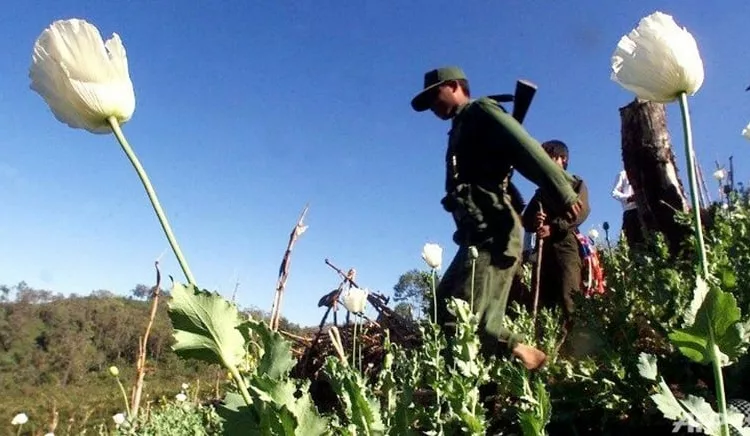A new report released by the United Nations reveals that Myanmar has overtaken Afghanistan as the world’s leading producer of opium in 2023. This significant shift follows three consecutive years of expanding cultivation in Myanmar, largely attributed to the ongoing civil war and the country’s plummeting economy.
After holding the title for more than two decades, Afghanistan witnessed a dramatic decline in poppy cultivation this year. The ruling Taliban’s strict enforcement of a poppy farming ban saw the cultivated area reduce from 233,000 hectares in 2022 to under 11,000 hectares in 2023.
Conversely, Myanmar’s opium cultivation has steadily increased since the 2021 military coup, which plunged the nation into an ongoing civil war.
The U.N. report, “Southeast Asia Opium Survey 2023,” states that the area under poppy cultivation in Myanmar jumped by 18% this year, reaching 47,000 hectares – the highest since 2013.
Jeremy Douglas, the regional representative of the U.N. Office of Drugs and Crime, attributed the rise to the severe economic hardships faced by the population.
“Lack of security and instability have led to significant economic turmoil, causing people to turn to alternative income sources like poppy production,” he explained.
Opium cultivation has become increasingly attractive for farmers due to the high prices offered by drug traffickers and middlemen. This year, farmers received significantly higher prices per kilo than in previous years, further motivating them to expand their poppy fields.
The UNODC estimates that Myanmar’s farmers produced enough poppy this year to yield up to 1,080 metric tons of dry opium. This translates to potential earnings of $2.5 billion, primarily benefiting the traffickers who transport the drug across Asia and beyond.
The report warns that the global opium and heroin shortage expected due to Afghanistan’s poppy crash is likely to drive prices even higher. This, in turn, could incentivize further expansion of poppy cultivation in Myanmar and a potential resurgence of Golden Triangle heroin in international markets like Europe and North America.
The surge in opium production poses several challenges for Myanmar. It is anticipated to lead to an increase in drug addiction among farmers and the need for more resources for treatment programs. Additionally, the rising opium prices could threaten the U.N.’s program in Shan state that encourages farmers to switch to alternative crops like coffee.
With the ongoing civil war showing no signs of abating, the UNODC predicts further expansion of opium cultivation in Myanmar in 2024.
Benedikt Hofmann, the UNODC’s deputy regional representative, stated, “Until the insecurity and economic hardships improve, people will continue to view opium as a viable crop, especially in the absence of the rule of law.”





